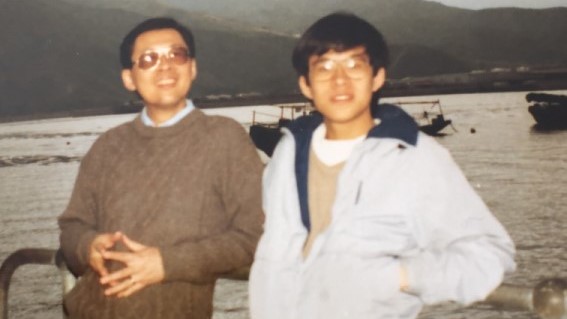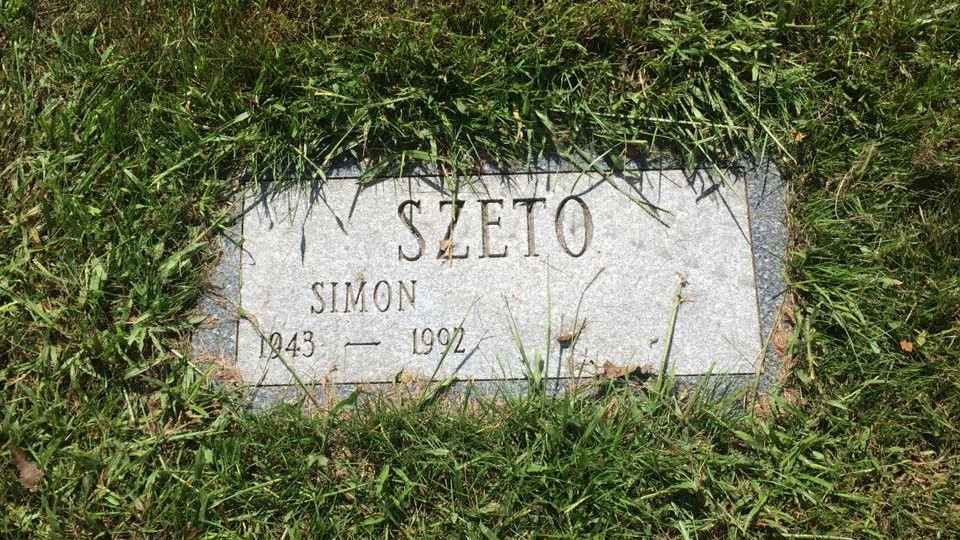Not too long ago, I happened to hear about an old friend from school. We had corresponded off and on for a while, but I hadn’t really seen her for over 18 years.
(Out of respect for her privacy, I’m not mentioning her name. If you’re reading this, and I hope you are, know that I’m writing this for you out of the best faith. Tough love is as hard on the giver as it is on the recipient.)
I had just recently found out her father passed away in 2016 from a road accident. I had never personally met the man, though I knew who he was. The sudden unexpectedness of the accident reminded me of when my own father had passed away from a heart attack.

I was in college when my father passed away. I had just recently graduated, but I was spending the summer at school to finish up some work with the professor advising my senior project.
The last conversation I remember having with him was just before I drove back to campus. He disapproved of my behavior over something at home, and he didn’t like the attitude I was copping back then. (He was right. I could be a big d-bag at times in my 20s.)
Two weeks later, I got the call from my mom that he was dead. He was out riding his bike when he suddenly keeled over on the road. A passing driver saw him lying face down and called 911.
He was 49, only about three months out from his 50th birthday.
I didn’t actually visit his grave until 2018, 26 years after his death. While I did come home for the funeral, his body was taken away to be cremated. I never knew exactly where he was buried, just that it was in the town cemetery, somewhere.
After college I went on military active duty before moving to Kentucky. My mom eventually sold our home and moved away after retirement. So I never really had a chance to come back home until my 30-year reunion.
But if I were to be brutally honest with myself, I was avoiding coming to terms with my own issues towards my late father.

For a long time, I’d had some mixed feelings about my father. He was well-respected by his colleagues at work and was a deacon and active participant at our church. I respect and appreciate everything he did for our family. I can’t fault him for being a provider or being physically present for my brother’s and my events.
Physically present.
For while he was there for us in body, inside he was emotionally detached and distant. Many evenings he would often withdraw after dinner into the study to do more of his office work on the computer, his back towards us. I always felt that when he passed away, his actual death was five years earlier, and it took his body some time to catch up.
This is not to disqualify the good things about him. Nor do his good things excuse the flaws in his character. This isn’t an accounting balance sheet, this is my dad.
What I’ve had to learn is to accept him in his totality: cherish the good, and forgive the bad. Because when I eventually have children, they will have to do the same for me.
Back to my friend:
I remember asking her one time, why she chose the college she attended. She answered that she wanted to get as far from home as possible. (It was about a ten hours’ drive from her house.)
She will never confirm it, but I believe she was running away from her father, both figuratively and literally.
Over the years I have dated many women, and one of the key indicators I’ve picked up, of whether the match is a good one or not, is the woman’s relationship with her father. I have learned over time, when dating, to check out the woman’s father as well as herself. The father models the ideal man for the daughter, both his positive and negative traits, and she will seek after a man just like her father. (Yes, even the character flaws.)
Or, in her case, it drove her away. I know next to nothing about her dating history, but it’s telling that I can’t recall a single long-term relationship she had, despite being one of the most popular girls in class.
Modeling on the father doesn’t just apply to women. Men also shape themselves in the image of their fathers. Whatever traits the father has, he will pass on to his sons. Both positive and negative. While working through my own personal issues, I’ve often been struck how similar they were to things I didn’t like in my own dad.
As we men grow up and start our own families, there are two things we must keep in mind. First, our children see everything, both good and bad, and model it in the men they seek or the men they become.
This can be hard for men, particularly men of my generation (Generation X) and earlier. We’re taught to be pillars of strength for our wives and children, to be in control of our actions and our emotions. But sometimes, like my dad, we go too far, subsume ourselves in our work, and become emotionally if not physically distant. Like Colonel Miller of the post-apocalyptic Metro series, we try to be fathers, but end up colonels, senior engineers, directors, and so on.
(As a side note, I’ve noticed that some of the younger generation tend to overcompensate in the other direction: being emotionally open, but lacking the strength of character their families need when times get tough. This is not an either/or choice, but it’s not easy being both simultaneously.)
Second, and this applies to both men and women: we must realize our own fathers are very much human, with both good and bad traits. For us to grow and become better people (and better parents), we must learn to accept our fathers for who they are, and forgive them for the shortcomings that they show. This is true even if they have passed on.
Especially if they have passed on.
And so, my dear and precious friend, please listen to what I’ve said: accept your father for who he was. Honor the fond memories of him, and forgive him for not being the man you wanted and needed him to be. You are your father’s daughter, and everything good about you originated from him.
I don’t know what happened between you both to make you run away. But I do know that, in five decades of living halfway around the world and back, you are the kindest person I’ve ever met. Forgiveness isn’t about what he deserves, it’s about who you are.
You’ve become to me like the sister I never had. I love you too much to stand behind the touchline and watch you keep running away the rest of your life.